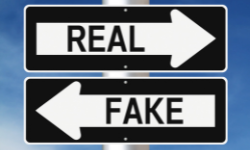If you sell branded products on Amazon.com, you may know that infringement is rampant. You put up a product, it gets popular, and all of a sudden, like a many-headed hydra, other sites spring up selling “your” product at reduced prices. Getting Amazon to remove infringing products can be a challenge even for IP lawyers but by all reports the situation has improved. Keep in mind that Amazon lists hundreds of millions of products so the challenge is theirs also.
In November last year, CNET reported that Amazon was finally getting fed up with the situation and had launched a new initiative to fight cheap knockoffs and fakes. The initiative is to take two forms: (1) enhanced buyer protection tools, referred to as “Brand Central”; (2) and, yes, litigation.
Brand Central consists of a set of tools that Amazon-registered brand owners may utilize. According to Amazon, its Brand Central tool referred to as “Amazon Enhanced Brand Content (EBC)”
Amazon doesn’t explain how enhancing images and text placements protects the seller from infringement but one supposes that the registration itself may permit Amazon the ability to distinguish fake from authentic products. Amazon may also require resellers to prove the origin of their goods.
Amazon still maintains its infringement reporting page, which permits brand owners to report infringers. We’ve been underwhelmed over Amazon’s response to reports we’ve submitted on behalf of clients. One thing is for sure, readers should be aware that proof of brand ownership – usually a trademark certificate – is crucial. It’s also noteworthy that Amazon states that it does not enforce page ownership. In other words, other sellers can list matching items “against pages that you have created.” We suppose this means that other sellers can refer buyers to your descriptions but if the other seller’s descriptions don’t match your description, you can report that to Amazon. You can also report parties who have posted your copyrighted images to Amazon but you better have a copyright registration or other proof to show Amazon. Finally, Amazon will not enforce exclusive distribution agreements because they do not comprise intellectual property rights.
CNET also reported that Amazon is finally pursuing alleged counterfeit sellers in court. Amazon filed two lawsuits in Washington state against sellers of fake exercise and furniture moving equipment. One hopes that Amazon continues these activities.
— Adam G. Garson, Esq.


